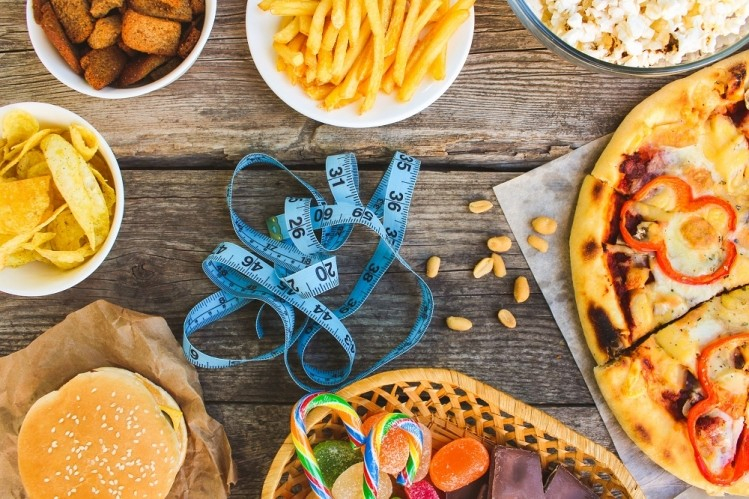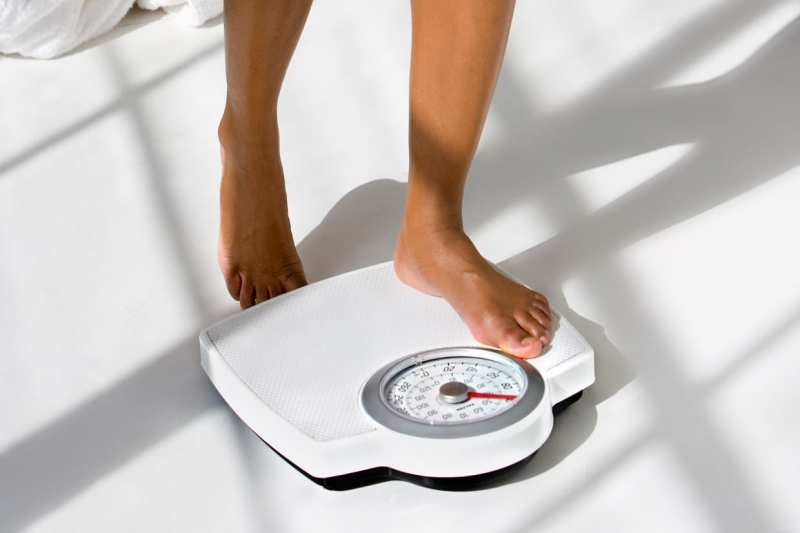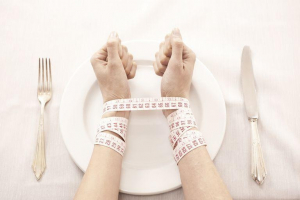Top 9 Causes of Unintentional Weight Gain
It can be really stressful to gain weight, especially if you don't know what's causing it. Although eating often has the greatest impact on weight gain, other ... read more...factors including stress and lack of sleep may also be involved. Here are some reasons why people unintentionally gain weight.
-
Foods that have undergone highly processing, such as sugary cereals, fast food, and microwave dinners, include a number of harmful ingredients, including added sugars, preservatives, and unhealthy fats. Additionally, a number of studies link highly processed food to weight gain and the worldwide and American rise in obesity rates. For example, a 2019 study of 19,363 Canadian adults found that those who consumed the most ultra-processed foods had a 32% higher risk of being fat.
The majority of highly processed foods are high in calories but low in essential nutrients like protein and fiber, which help you feel full. In fact, in a 2-week trial involving 20 people, those who consumed the ultra-processed diet daily consumed around 500 more calories than those who consumed the unprocessed diet. As a result, you should think about avoiding processed meals and snacks and putting a focus on whole foods. Oats, frozen fruit, and yogurt are some examples of minimally processed foods.

You eat too many highly processed foods 
You eat too many highly processed foods -
Sugar is fine for you in small amounts, but too much can lead to weight gain, acne, type 2 diabetes, and can increase your risk of several serious medical conditions. Your waistline can easily grow if you consume sugary foods and drinks on a regular basis, such as candy, cakes, soda, sports drinks, ice cream, iced tea, and sweetened coffee drinks.
Numerous studies have found a connection between sugar consumption and weight gain as well as a higher chance of getting chronic diseases including type 2 diabetes and heart disease. Sugary beverages in particular are the main source of added sugar in the US and are closely linked to weight gain. For instance, a review of 30 research including 242,352 children and adults found a link between the use of sweetened beverages and weight gain. One research of 11,218 women found that consuming one sugary beverage daily resulted in 2.2 pounds (1 kg) of weight gain over the course of two years, suggesting that giving up sweets would have the opposite effect.

You eat too much sugar 
You eat too much sugar -
Sedentary activities include driving, watching TV, using a computer or phone, and working a desk job. According to a study of 464 obese and overweight people, they spent an average daily sitting time was 6.2 hours on working days and 6 hours on non-working days. The biggest factor was working, and the second biggest one was watching TV.
Simple lifestyle adjustments like getting more exercise and spending less time sitting down can have a significant impact. For example, a 3-month study involving 317 workers found that replacing 1 hour of standing throughout the workday with 1 hour of sitting decreased overall fat mass and waist circumference while increasing lean muscle mass. Additionally, studies have demonstrated that excessive screen time is a major factor in unintentional weight gain. Even minor changes can help you lose weight, including going for a walk after dinner instead of watching TV, exercising or going for a walk during your lunch break, buying a standing or treadmill desk, or riding your bike to work.

You have a sedentary lifestyle 
You have a sedentary lifestyle -
Yo-yo dieting is the term used to describe cycles of intentional weight loss and unintentional weight gain. Notably, this pattern has a longer-term relationship with a higher risk of weight gain.
A study with 2,785 participants found that dieters had greater body weights and waist circumferences than non-dieters did. According to other research, restrictive eating and dieting might result in future weight gain because of how your body reacts to them physiologically, such as by changing your hormone levels of hunger and fullness. Additionally, the majority of people who lose weight through restrictive diets gain it all back within five years. You should concentrate on long-lasting lifestyle adjustments if you want to lose weight permanently. Exercise, avoiding processed and sugary foods, and consuming nutrient-dense, whole foods high in fiber and protein are some helpful suggestions.

You engage in yo-yo dieting 
You engage in yo-yo dieting -
Unintentional weight gain is caused by a variety of lifestyle factors, but some medical conditions may also be to blame. These consist of:
- Hypothyroidism. Your thyroid gland is impacted by this disorder, which may result in weight gain or make it difficult to lose weight.
- Depression: It has been associated with obesity and weight gain.
- Polycystic ovary syndrome (PCOS): Hormonal imbalances in women of reproductive age are a characteristic of PCOS. It could result in weight gain and make losing weight challenging.
- Binge eating disorder (BED): Recurrent episodes of uncontrollable eating are a defining characteristic of BED, which can result in a variety of health issues, including weight gain.
It's crucial to get the diagnosis from your doctor because other diseases like diabetes and Cushing's syndrome are also linked to weight gain. Additionally, some medications, such as antidepressants and antipsychotics, can cause weight gain. If you think your medication is the cause of your weight gain, consult a medical expert.

You have an undiagnosed medical issue 
You have an undiagnosed medical issue -
For general health and well-being, sleep is crucial. In addition to its other detrimental effects, sleep loss can cause weight gain. In comparison to women who slept 6 hours or more per day, a research of 92 women found that those who slept less than 6 hours per day had the greatest body mass index (BMI) and the highest levels of visfatin, a protein secreted by fat cells.
Those who slept 5.5 hours per night lost 55% less body fat than those who slept 8.5 hours per night in a two-week trial of 10 overweight people who were on a low-calorie diet. As a result, getting more sleep may help you lose weight. You can try limiting screen time before night, cutting back on your coffee intake, and getting to bed at a routine hour if your sleep is of poor quality. You can develop a treatment plan so that you get more high-quality sleep - and maybe even slim down.

You don’t get enough sleep 
You don’t get enough sleep -
Switching to a diet higher in whole foods if you frequently consume processed foods is a simple and effective strategy to encourage weight loss and enhance many other aspects of your health. The term ‘wholefood’ is normally applied to vegetables, fruits, legumes and whole grains that have undergone minimal processing, but it can also apply to animal foods too.
In fact, choosing whole, minimally processed foods is crucial for weight loss. In one study, 609 overweight adults were split into groups and instructed to follow either a low-fat or low-carb diet for a period of 12 months. Both groups received instructions to increase their consumption of vegetables, lower their intake of added sugars, trans fats, and refined carbs, consume a majority of the whole, minimally processed foods that are high in nutrients, and prepare most of their meals at home. It need not be challenging to include whole foods in your diet. Start by gradually including more whole, nutrient-dense foods in your meals and snacks, such as fruits, vegetables, beans, eggs, nuts, and seeds.

You don’t eat enough whole foods 
You don’t eat enough whole foods -
Chronic stress is a widespread issue that might have an impact on your weight. Increased hunger and a desire for highly delicious, calorie-dense foods have been linked to high levels of the stress hormone cortisol, which can lead to weight gain.
Furthermore, research shows that obese people have greater cortisol levels than obese people without this condition. Surprisingly, stress management may help people lose weight. In an 8-week study of 45 obese adults, those who practised deep breathing and other relaxation techniques lost more weight than those who only received standard dietary advice. Consider incorporating relaxation techniques proven to lower stress into your daily routine. These include practising yoga, being outside, and practising meditation.

You’re stressed out 
You’re stressed out -
One of the main consequences of eating too many calories is weight gain. Your body needs a certain number of calories to function, but if you consume more than it needs, it stores the extra calories as fat. Triglycerides, which are primarily stored as excess calories, put your heart health in danger when they rise.
Frequent snacking, mindless eating, and consuming diets high in calories but low in nutrients all encourage excessive calorie consumption. If you have trouble controlling your eating, it can be challenging to estimate your calorie requirements on your own. A high-fiber, high-protein diet rich in plant foods, drinking water instead of calorie-dense beverages, eating mindfully, paying attention to hunger and fullness cues, and increasing your exercise level are some easy methods to prevent overeating.

You eat too many calories 
You eat too many calories






























